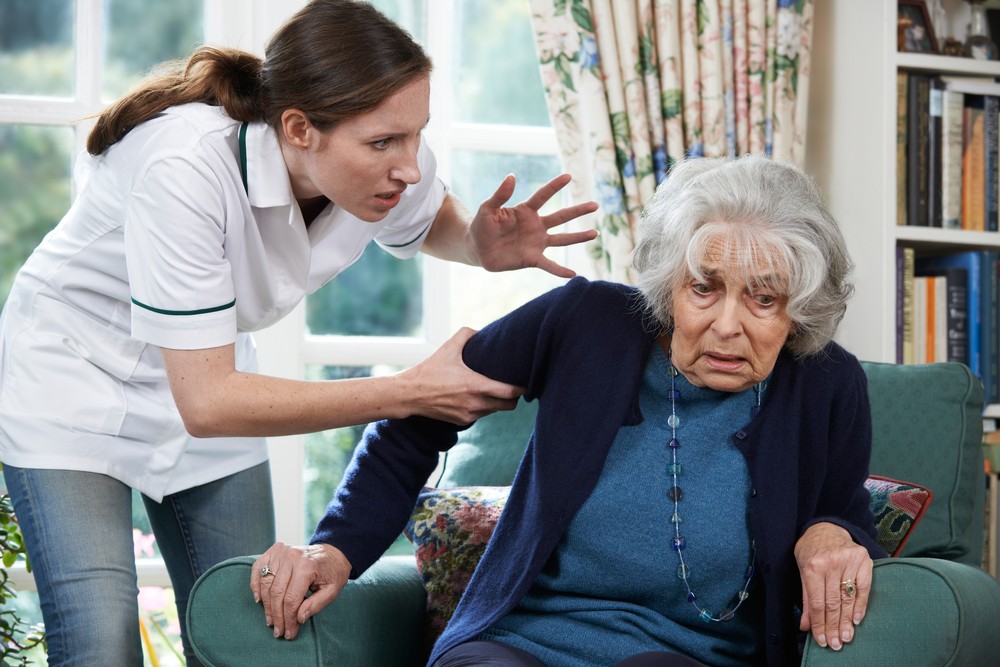
Maybe your loved one has unexplained bruising or sores. Or maybe you’ve seen signs of emotional mistreatment, such as a sudden reduction in cognitive abilities or abrupt changes in your loved one’s behavior. No matter the case, if you believe your loved one is being abused or negelcted in a nursing home, it’s important to act – and fast.
Our firm specializes in all aspects of medical malpractice, including nursing home abuse and neglect. Below, we’re outlining how to report nursing home abuse, including who to contact and how a lawyer can help.
What is Nursing Home Abuse?
Nursing home abuse refers to the willful infliction of harm on a resident, such as:
- Financial exploitation
- Psychological abuse
- Physical abuse
- Sexual mistreatment
- Neglect
- Abandonment
Nursing home residents are in an incredibly vulnerable position, and they may not be able to speak up for themselves when it comes to abuse. For that reason, identifying the signs and reporting nursing home abuse often falls on the shoulders of loved ones, many of whom will be navigating this process for the first time.
Examples of Reportable Incidents in Nursing Homes
Abuse is just one of various types of reportable incidents in nursing homes, but it’s also one of the most serious. If it’s not addressed, there’s a potential for the harm to increase or for your loved one to experience a life-changing injury or worse at the hands of an abusive caregiver.
Incidents that warrant a formal report include any sort of physical harm, including physical or chemical restraints, as well as verbal threats, inappropriate touching, stealing, or failing to meet a resident’s medical needs. Always trust your gut, and if you see something, say something. It’s better to report your concern and have it turn out to be nothing than to sit and wait for more evidence while your loved one suffers.
Who Do You Report Nursing Home Abuse To?
Who you should be reporting nursing home abuse to varies by state. Here in Florida, you have several options to consider, including:
- Florida Abuse Hotline: (800) 962-2873
- Florida Department of Elder Affairs (DOEA): (800) 962-2873
- Agency for Health Care Administration (AHCA): (888) 419-3465
- Long-Term Care Ombudsman Program: (888) 831-0404
Resources like the Long-Term Care Ombudsman Program offer advocacy services that support your family at this troubling time, while others start the process of moving your claim through the proper channels. If you believe the abuse is criminal in nature or that your relative is in immediate danger, then you should also file a report with your local law enforcement department.
How to Report Nursing Home Abuse
Under Florida law, you have a legal obligation to file a report if you suspect an elderly individual is being abused in a nursing home. Here’s how to do it.
Document the Abuse: Photographs, witness statements, medical records, staff records, and other pieces of evidence will be necessary for supporting your claim.
Report the Abuse: You can start the filing process by calling one of the numbers above or by submitting a written report online at ReportAbuse.myflfamilies.com. Again, if you think the abuse is criminal, or your loved one is in immediate danger, please contact law enforcement as well.
Contact an Attorney: Reporting nursing home abuse is just step one. Bring on an attorney who can oversee the next steps of your claim, independently investigate the charges, and make sure your loved one’s rights are protected.
How to Report a Nursing Home for Neglect
The process for reporting a nursing home for neglect is the same as reporting it for abuse. Maintain clear documentation in support of your claim, and report the neglect through the right channels. Nursing home neglect is another type of medical malpractice, so consult with an attorney too. The more people you have on your side in this, the less stress and responsibility will be put on your own shoulders.
Speak to a Florida Nursing Home Abuse Lawyer for Free
Our nursing home abuse lawyers understand the complexities of these types of cases. Call for a free, no-obligation consultation and get more information on how to report nursing home abuse and move forward with your claim.